By: Helsing Admin
Every association has one, but what exactly is it that an HOA Board of Directors does (or is supposed to do)? Your HOA Board of Directors is a body of elected members who jointly oversee the activities of your association. It is often simply referred to as “The Board”.
An HOA board’s activities are determined by the powers, duties, and responsibilities delegated to it or conferred on it by an authority outside itself. These matters are typically detailed in the association’s bylaws. The bylaws commonly also specify the number of members of the board, how they are to be chosen, and when they are to meet. In California, the Board’s activities are also determined (things they must do) and limited (things they may not do) by a portion of the Civil Code known as the Davis-Stirling Act. In all states, the Board’s activities are also determined and restrained by the Corporations Code.
Simply put, they first function under the laws that the Board of Directors of any Corporation must abide by – the same laws that control Hewlett-Packard, or Chevron, or any corporation (Corporations Code). Inside that, they must abide by the laws specific to homeowners associations (Davis-Stirling Act). Finally, they must abide by the association’s bylaws and also within the constraints of the association’s Covenants, Conditions, and Restrictions (CC&R’s).
As in any organization with voting members, the board acts on behalf of, and is subordinate to, the organization’s full group (the homeowners), which typically chooses the members of the board through an election process. While the members elect the HOA board, it is the Board’s sole duty to make decisions in the best interests of the community. Homeowners/members do not normally get a say in decisions, outside of who they elect to their Association’s Board. Duties of an HOA Board of Directors include:
· Protecting the property values of the homes in the community through sound business practices.
· Within the authority granted them by the membership through the CC&R’s: adopt policies, procedures, and rules for the operation of the association.
· Ensure the availability of adequate financial resources.
· Approve annual budgets.
· Account to the homeowners for the Association’s performance.
· Select, appoint, support and review the performance of all vendors, including their managing agent; and determine the authority delegated to the manager.
There are a series of actions that Boards MUST do and a list of actions Boards MUST NOT do. Likewise, there are things Boards Should and Should Not do. A list of many of the do and do-not items are listed below, and if we have already published articles concerning them a link to that article is provided. If not, it will be the subject of a future article.
HOA Boards MUST or SHOULD:
· Operate using sound business principles
o Spend money wisely, but don’t be afraid to spend money
o Hire licensed contractors
o Keep association business confined to the membership, not outsiders
o Set Standards and Expectations
· Raise adequate money to properly maintain and operate the association
o Reserve Responsibly
o Invest Responsibly
· Enforce the governing documents
· Get legal advice (or other professional advice) when needed
· Ensure adequate insurance is in place (Directors and Officers, Property and Liability, Fidelity, Cyber theft)
· Be aware of the financial operations of the association
· Conduct effective meetings that accomplish business
· Understand what duties you have, or have not, given management
HOA Boards MUST NOT or SHOULD NOT:
· Discuss (electronically or in person) business matters outside of a noticed meeting
· Discuss matters in a meeting not on the agenda
· Show favoritism to any homeowner
· Influence elections
· Borrow from Reserve Funds without following notice and payback procedures
· Express policies to members, in writing or in speech, unless there is already a Board position on the matter
This article is also a living article. This means it will be edited and refined over time to be a source document for all Board members, and new Board members in particular, to use as a reference and educational guide. If you see something we should include, please let us know.
Copyright 2014
The Helsing Group, Inc.
All Rights Reserved



